The festival is held once every two years to preserve and develop the ethnic traditional cultures. This year, although the festival lasted only three days, there were a variety of rites and traditional activities imbued with the unique cultural features of ethnic groups in the Central Highlands. These included a water wharf worshipping ceremony, a ceremony on praying for elephant’s health, a buffalo stabbing ceremony, an elephant race and an elephant soccer competition.
At the opening ceremony, the event that left a long-lasting impression on viewers was the buffalo stabbing ceremony. The ceremony was carried out according to the customs and rites of ethnic groups. It started with a Xoang dance performed by artists from Krong Na Commune. In the flickering flame with the sounds of gongs, the ceremony became more sacred and fanciful.
The festival also saw a water wharf worshipping ceremony. According to Dak Lak Culture, Sports and Tourism Department, the water wharf worshiping ceremony of the E De ethnic people is annually held in March with the aim of praying for clean and pure water and good health. The offerings of the ceremony consist of three pigs, which are killed and cooked to offer to the ancestors, the water wharf and the house owner.
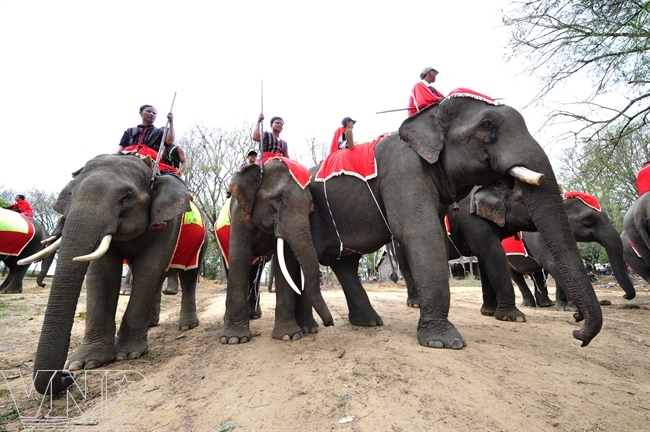
The elephants take part in the elephant health praying ceremony in Tri A Hamlet, Krong Na Commune.
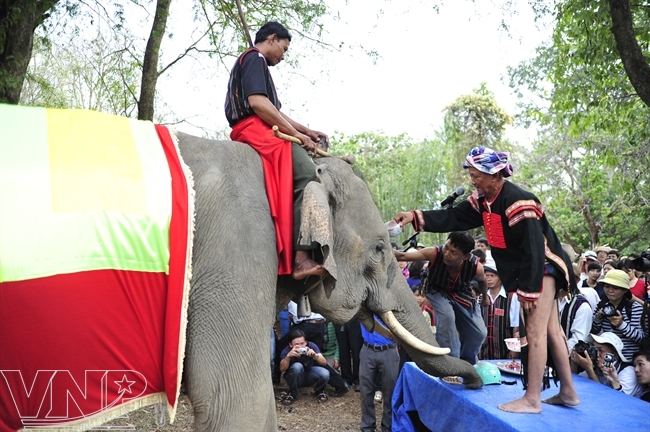
The sorcerer carries out the elephant health praying ceremony.
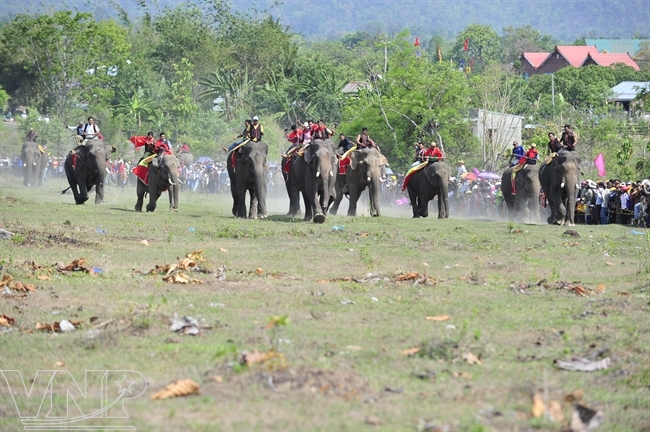
The traditional elephant race in Buon Don.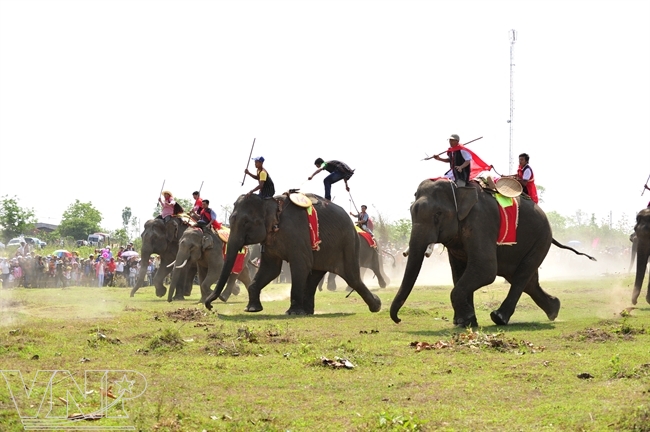
The elephant race expresses the sporting spirit of ethnic groups in Buon Don.
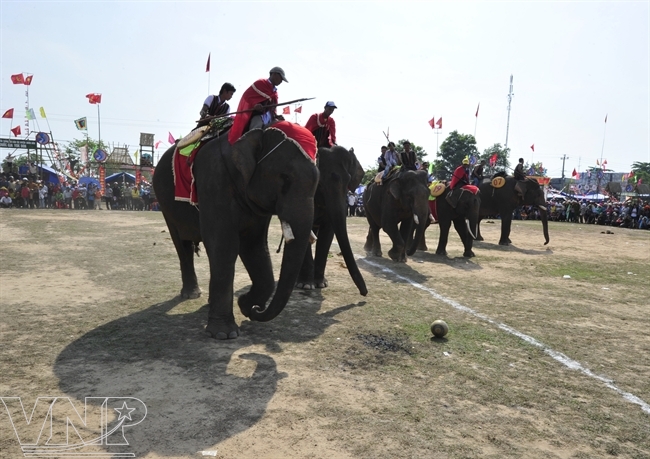
The elephant soccer competition is very funny.
One of the most significant ceremonies was the elephant health praying ceremony. It expressed the carefulness of people for their livestock and also conveyed a message that people should take care of and protect elephants. To perform the rite well, the elephant owner must ask for help from a sorcerer who must be good at the rites and understand thoroughly the customs of the E De ethnic people. The offerings include a buffalo or a pig, or a chicken, depending on the financial resource of the elephant’s owner. Also necessary are at least three jars of Can wine, a small bowl of rice with a beeswax candle, a small bowl of rice, a gourd of water and some pork sausage dishes.
The elephant race is an indispensable part of the festival. It is held at a time when the ethnic people start clearing the land to prepare for cultivation. It is the best time of the year because it is dry and sunny, facilitating transportation.
With unique worshipping rites and cultural features, the traditional cultural festival of the ethnic people in Buon Don draws special attention from tourists both at home and abroad.
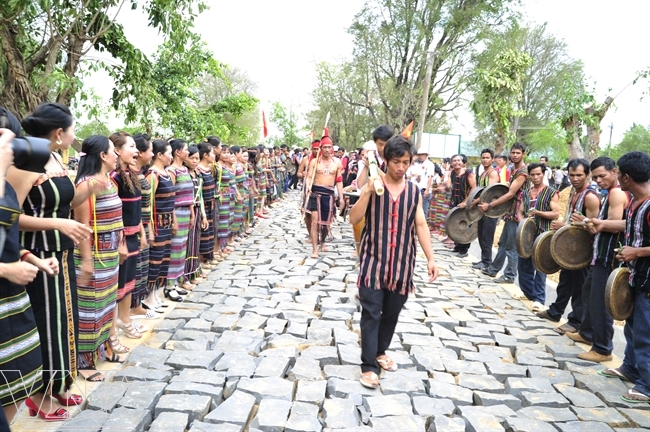 The villagers excitedly take part in the water wharf worshipping ceremony.
The villagers excitedly take part in the water wharf worshipping ceremony.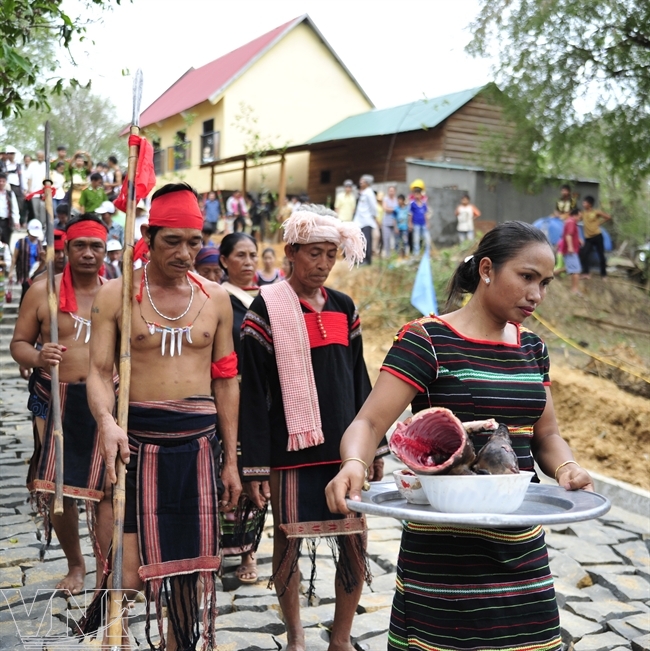
A sorcerer and E De men escort the offering tray to worship the God of the water wharf.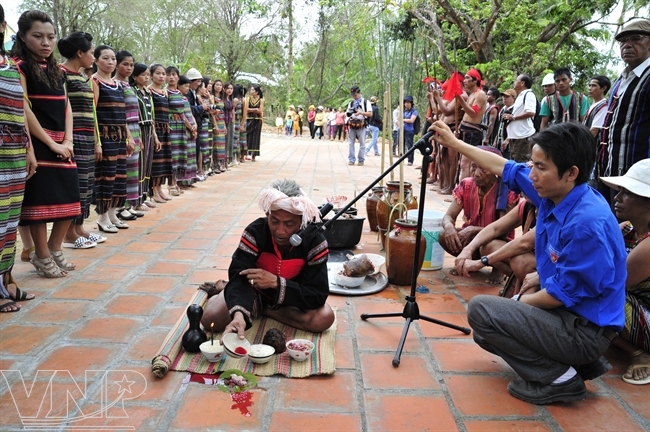
The water wharf worshipping ceremony is held at Serepok River's bank.
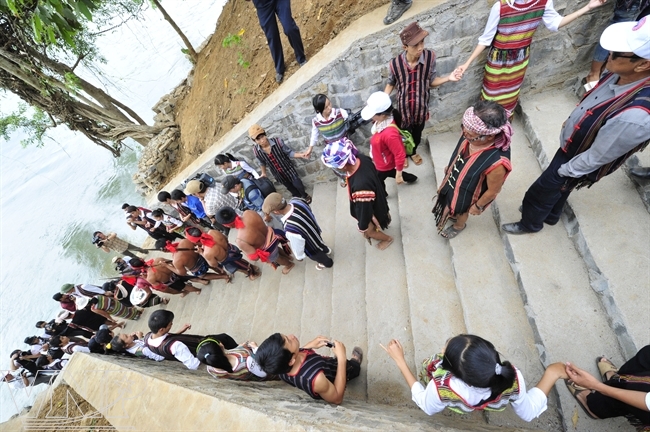
After the ceremony at the river's bank, people take it at the water wharf .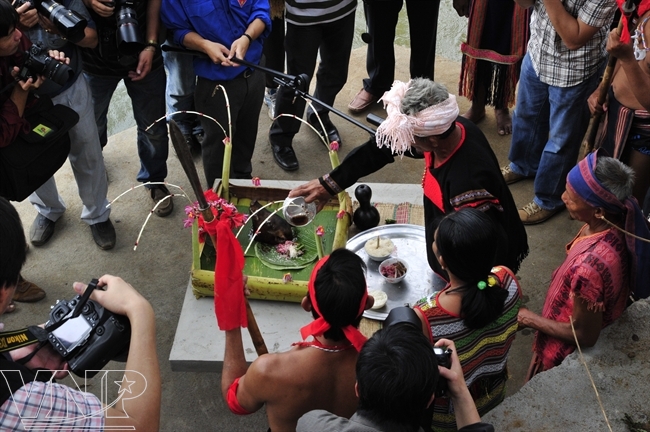
The sorcerer carries out the water wharf worshipping ceremony according to the traditional customs of the E De people.